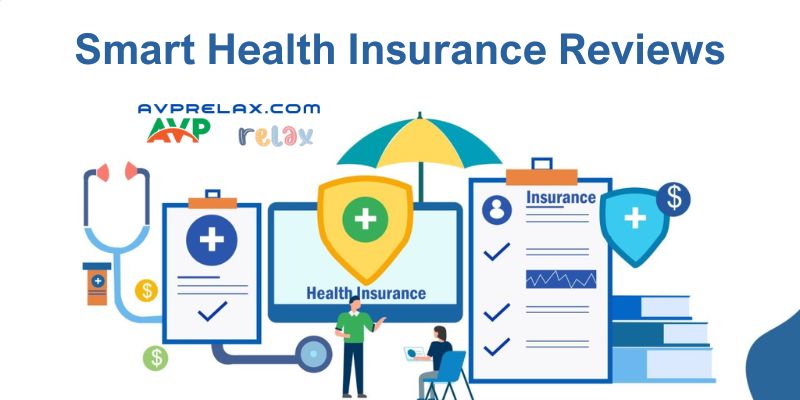If you’re someone who has never had health insurance or have been considering canceling your existing plan, you might be wondering what the penalty for not having health insurance is. In this article, we’ll explore the importance of health insurance and the penalties associated with not having one.
Health insurance is crucial because it provides financial protection in case of an unexpected illness or injury. Without it, you could be left with enormous medical bills that could put a significant strain on your finances. In addition, health insurance can help you receive timely and necessary medical care, which can improve your health outcomes.
However, if you choose not to have health insurance, you may be subject to a penalty. The Affordable Care Act (ACA) mandates that individuals must have health insurance or pay a penalty, also known as the individual mandate. This penalty is intended to encourage people to purchase health insurance and ensure that everyone has access to healthcare.
In the next sections, we’ll delve into more detail about the ACA, the penalty for not having health insurance, and alternatives that you can consider if you’re unable to afford a traditional health insurance plan.
The Affordable Care Act (ACA)

The Affordable Care Act, also known as Obamacare, was signed into law in 2010 with the aim of making healthcare more accessible and affordable for Americans. The ACA introduced several reforms to the healthcare system, including the expansion of Medicaid, the creation of health insurance marketplaces, and the requirement that individuals have health insurance.
The individual mandate is a provision of the ACA that requires most Americans to have health insurance or pay a penalty. The penalty is calculated based on a percentage of your income or a flat fee, whichever is higher. In 2021, the penalty is the greater of $695 per adult or 2.5% of your household income. This penalty is designed to encourage healthy individuals to purchase health insurance and prevent them from waiting until they get sick or injured to buy coverage.
There are some exceptions to the individual mandate penalty. For example, individuals who are unable to afford health insurance, have experienced a hardship, or have religious objections to health insurance may be exempt from the penalty. Additionally, some individuals may qualify for a hardship exemption if they experienced a significant life event, such as a natural disaster or the death of a family member.
In the next section, we’ll discuss the penalty for not having health insurance in more detail, including how it’s calculated and when it applies.
Penalty for Not Having Health Insurance

If you’re an individual who chooses not to purchase health insurance, you may be subject to a penalty fee. The penalty fee is calculated based on your income, and the amount increases each year.
Explanation of the Penalty for Not Having Health Insurance
The penalty for not having health insurance is also known as the individual mandate penalty. It was established by the Affordable Care Act (ACA) to encourage people to purchase health insurance. The penalty is designed to ensure that everyone has access to healthcare and prevent people from only purchasing insurance when they’re sick.
Calculation of the Penalty Fee
The penalty fee is calculated based on your income and the number of months that you didn’t have health insurance. In 2021, the penalty fee is $695 per adult or 2.5% of your income, whichever is greater. The penalty fee for children is half the amount of the adult fee.
For example, if your income is $50,000 and you didn’t have health insurance for six months, your penalty fee would be $875. This is calculated by taking 2.5% of your income, which is $1,250, and dividing it by 12 months. Since you didn’t have insurance for six months, you would owe $625.
Exceptions to the Penalty Fee
There are some exceptions to the penalty fee. You may not be subject to the penalty if you meet certain conditions such as:
- Having a low income and not being required to file a tax return
- Experiencing a hardship such as a natural disaster or eviction
- Experiencing a short coverage gap of less than three months
- Being a member of a recognized healthcare sharing ministry or religious sect with objections to insurance
It’s essential to note that the penalty for not having health insurance is still in effect for 2021. However, starting in 2022, the penalty fee will no longer be enforced.
Alternatives to Health Insurance
Overview of Alternative Health Insurance Options
If you’re unable to afford traditional health insurance, there are several alternatives that you can consider. However, it’s important to note that these alternatives are not considered insurance and may not provide the same level of financial protection.
One option is a healthcare sharing ministry, which is a faith-based organization where members share healthcare costs. These ministries are not regulated by the government and may have specific eligibility requirements, so it’s essential to research them thoroughly before joining.
Another option is a short-term health insurance plan, which provides temporary coverage for a limited period, usually up to 12 months. These plans can be less expensive than traditional insurance plans, but they may not cover pre-existing conditions, and there may be limitations on the benefits provided.
Pros and Cons of Each Option
Each alternative health insurance option has its own set of pros and cons. Healthcare sharing ministries can be less expensive and provide a sense of community, but they may not cover all medical expenses and may not be available in all areas. Short-term health insurance plans can be affordable and provide coverage for unexpected medical expenses, but they may not cover pre-existing conditions and may have limited benefits.
Explanation of the Risks Associated with Not Having Health Insurance
It’s important to note that not having health insurance can be risky. Without insurance, you may be responsible for paying all medical expenses out of pocket, which can be financially devastating. In addition, delaying necessary medical care can lead to more severe health issues down the road, which can be costly to treat.
While alternative health insurance options can be beneficial, they may not provide comprehensive coverage, and it’s essential to weigh the pros and cons carefully. Ultimately, having some form of health insurance is essential to protect yourself and your finances in case of an unexpected medical issue.
How to Avoid the Penalty for Not Having Health Insurance
If you’re worried about having to pay the penalty for not having health insurance, there are a few ways to avoid it. Here are some strategies you can use to ensure that you’re not subject to the penalty:
1. Enroll in a Health Insurance Plan
Enrolling in a health insurance plan is the most straightforward way to avoid the penalty. You can purchase a plan through the Health Insurance Marketplace, your employer, or a private insurance company. It’s essential to research different plans to find one that meets your needs and budget. Once you’ve selected a plan, make sure to enroll during the open enrollment period.
2. Qualify for an Exemption
If you meet certain criteria, you may be eligible for an exemption from the penalty. Some exemptions include:
- Financial hardship
- Religious objections
- Membership in a recognized healthcare sharing ministry
- Being uninsured for less than three months
To claim an exemption, you’ll need to submit an application through the Health Insurance Marketplace.
3. Apply for Medicaid or CHIP
Medicaid and the Children’s Health Insurance Program (CHIP) are government-funded programs that provide health insurance to people with low incomes or disabilities. If you meet the eligibility criteria, you can enroll in these programs and avoid the penalty.
4. Consider Short-Term Health Insurance Plans
Short-term health insurance plans are designed to provide temporary coverage for people who are between jobs or need a temporary solution. These plans typically offer lower premiums than traditional health insurance plans, but they may not provide comprehensive coverage. It’s essential to research different short-term plans to find one that meets your needs and budget.
By following these strategies, you can avoid the penalty for not having health insurance and ensure that you have access to healthcare when you need it.
Conclusion
In conclusion, health insurance is an essential investment that provides financial protection and timely access to medical care. The Affordable Care Act mandates that individuals must have health insurance or pay a penalty, which can vary depending on your income and family size.
However, there are alternatives to traditional health insurance plans that you can consider, such as short-term health insurance plans, health sharing ministries, and Medicaid. It’s important to research and compare these options carefully to find one that best suits your needs and budget.
Remember, by having health insurance, you’re not only protecting yourself from financial hardship but also ensuring that you can receive necessary medical care. So, if you’re currently uninsured, consider enrolling in a health insurance plan or exploring alternative options to avoid the penalty for not having health insurance.






